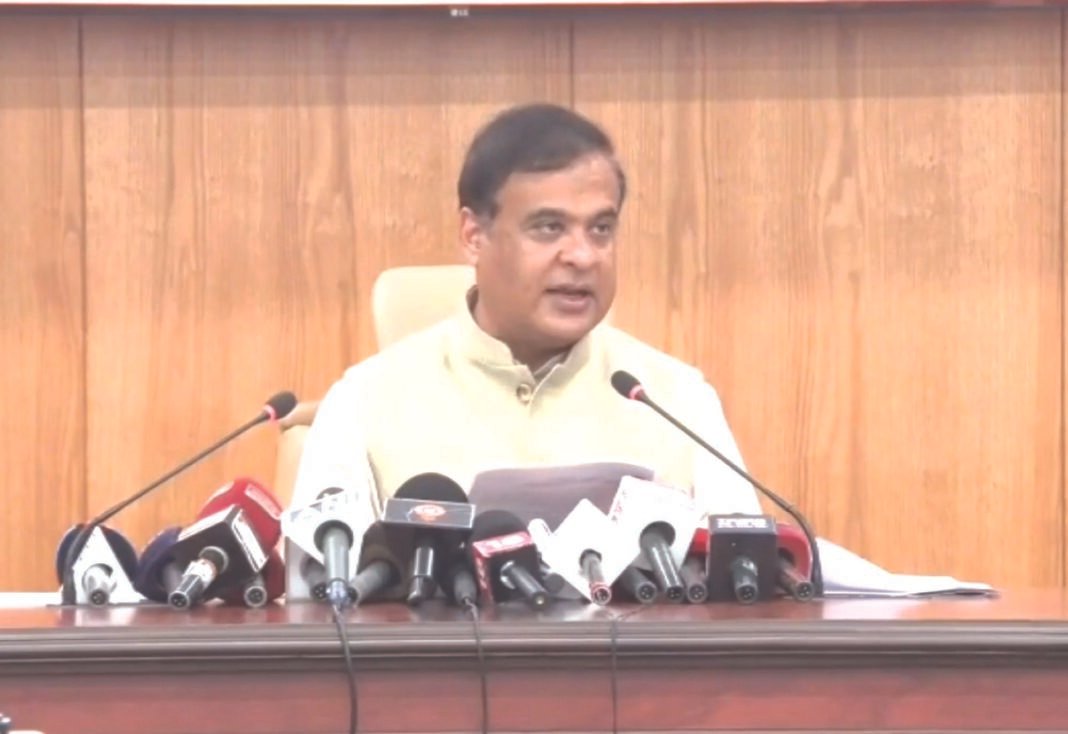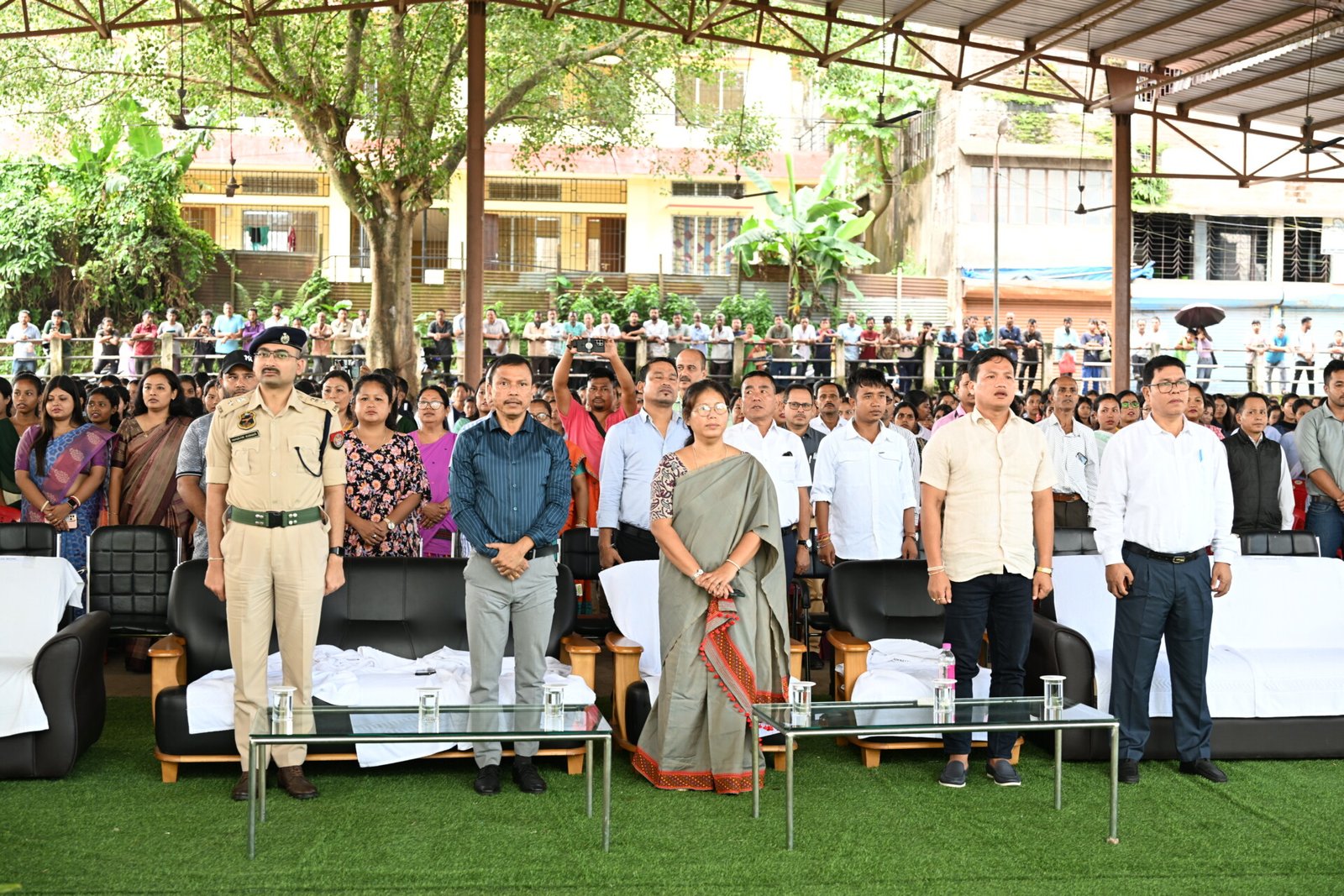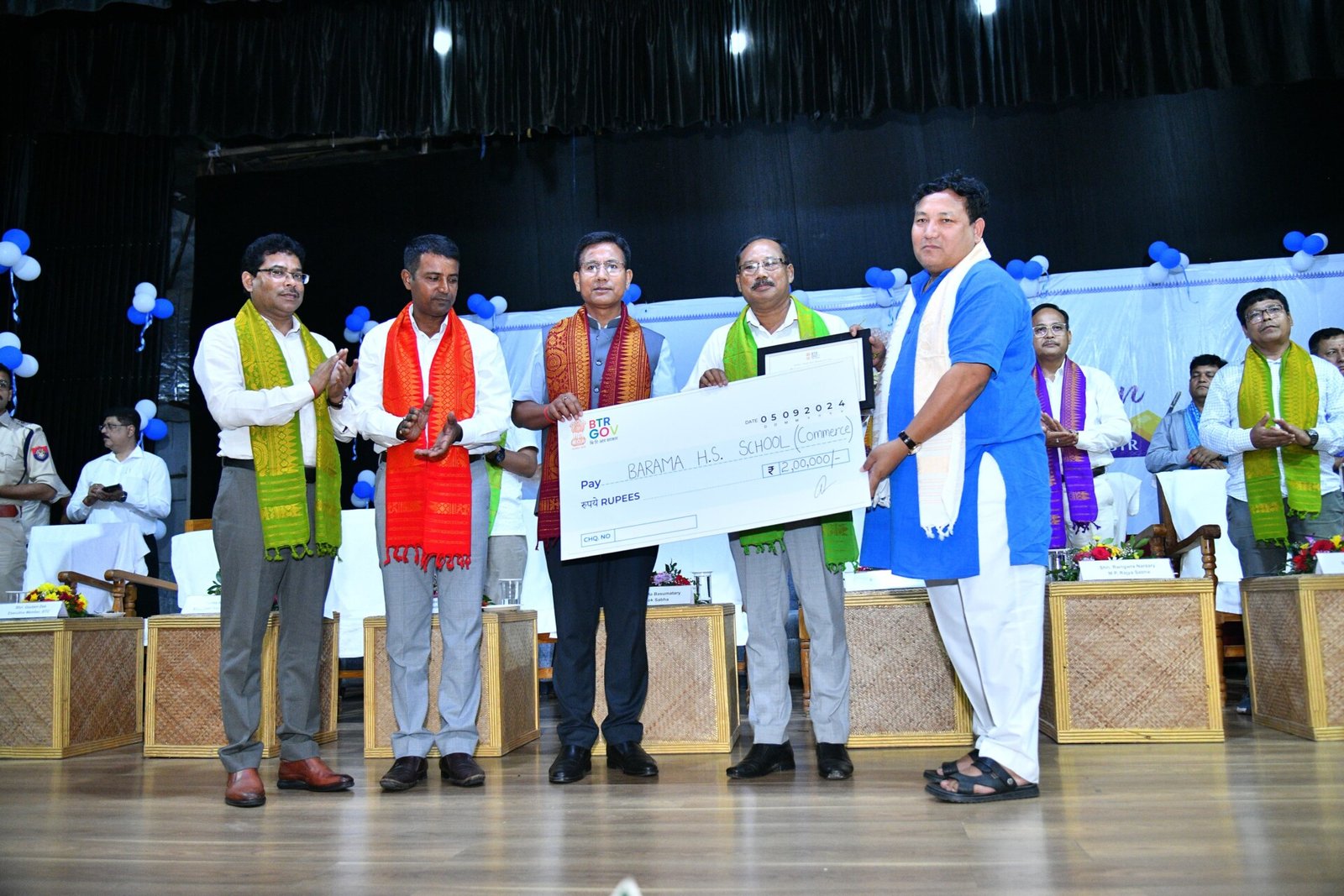HT Bureau
GUWAHATI, July 10: Chief Minister Himanta Biswa Sarma on Thursday interacted with Headmasters of Tea Garden Model Schools and Adarsha Vidyalayas at a programme held at the GMCH Auditorium, where he unveiled a series of key policy decisions aimed at improving infrastructure, academic quality, and student welfare in these institutions.
The interaction was part of a broader initiative by the state government to transform education in remote and underprivileged areas, particularly among tea garden communities.
According to an official statement, Sarma announced that the Assam government will operationalise 80 more Tea Garden Model Schools in January 2026.
This will be in addition to the 118 schools that were inaugurated following the laying of foundation stones in November 2022.
The Chief Minister stated that the expansion is a result of the positive outcomes observed in existing model schools, which have played a crucial role in delivering quality education to children in tea garden areas.
The Tea Garden Model School initiative was launched with the goal of establishing 200 schools across 800 tea gardens in the state, providing accessible and holistic education to one of Assam’s most underserved communities.
“Our objective is not just to open schools, but to enhance the academic and infrastructural standards so that students receive the best possible environment to learn and grow,” said Sarma.
Highlighting further reforms, the Chief Minister said the government is actively considering the introduction of a mid-day meal programme for students of Class IX and X, expanding on the existing programme for students up to Class VIII.
He noted that this would help reduce dropout rates and incentivise older students to stay in school.
Additionally, the government is also exploring the launch of a School Breakfast Programme along with mandatory health check-ups to promote students’ physical well-being and attendance.
He added that efforts are underway to equip schools with smart classrooms and interactive boards, particularly in model schools, to bring digital learning to rural students.
To address mobility issues faced by children in remote tea garden areas, bicycles will be distributed to students from Class VI onwards, Sarma announced.
This is expected to help students travel longer distances to reach schools, especially in regions with limited public transport.
Another key measure proposed by the government includes skill development training for students of Class IX and X in both Tea Garden Model Schools and Adarsha Vidyalayas.
Sarma emphasised the importance of equipping students with employable skills alongside formal education.
During the session, the Chief Minister reviewed pass percentages, teacher vacancies, and student attendance, and instructed education officials to continue improving the quality of teaching.
He also stated that one-year mandatory apprenticeship training for B.Ed students will be formalised in these schools, giving aspiring teachers hands-on experience while supporting the staffing needs of rural institutions.
Sarma further instructed authorities to build boundary walls around schools that lack them, in response to requests raised by headmasters.
The state government also encouraged enrolment from all communities in the Tea Garden Model Schools to foster social integration and communal harmony.
In reference to Adarsha Vidyalayas—currently 57 in number across the state—Sarma reiterated the state’s vision of nurturing talent and creativity in remote areas through high-quality education.
He encouraged headmasters to strive for academic excellence and to continue upholding the values for which the schools were founded.
The interactive session was attended by Education Minister Ranoj Pegu, Labour Welfare Minister Rupesh Gowala, Additional Chief Secretary for Tea Tribes Welfare J B Ekka, and Mission Director of Samagra Shiksha Assam Om Prakash, along with other senior education and administrative officials.
The announcements reflect the Assam government’s continued push towards educational equity and reform, particularly in tea garden areas that have historically faced barriers to quality schooling.
The state’s focus now shifts to effective implementation of these measures, with the aim of transforming Tea Garden Model Schools and Adarsha Vidyalayas into centres of academic excellence and inclusive development.












